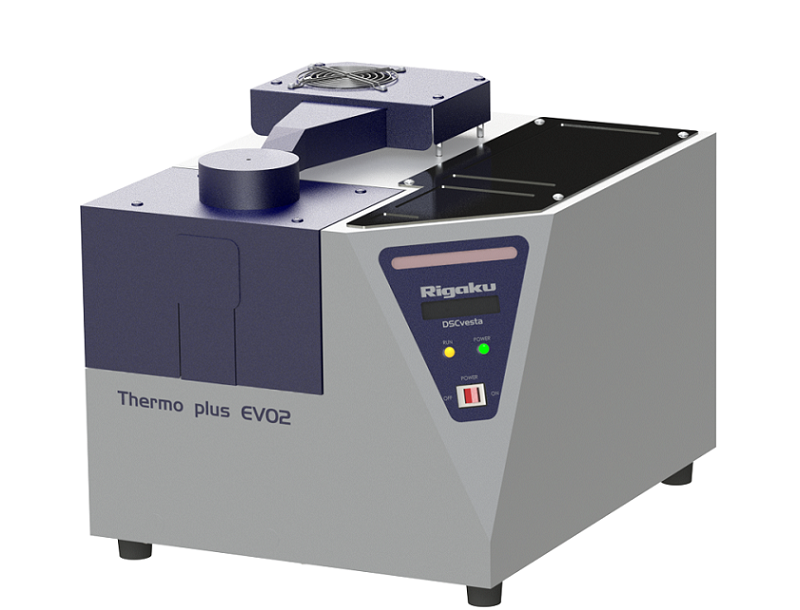DSCvesta
DIFFERENTIAL SCANNING CALORIMETER
Characterize heat gain/loss associated with phase transitions

Features
- Easy to use operability
- Applicable to variety of specimens such as polymers, liquid crystals, gels, nanoparticles as well as proteins and biopolymers.
- High-power point focus X-ray source
- OptiSAXS high-performance multilayer optics
- HyPix-3000 high-performance 2D HPAD detector
- Superior small angle resolution (Qmin to 0.02 nm-1)
Introduction
Differential scanning calorimetry (DSC) measures energy changes in reactions such as melting, transition, crystallisation, and glass transition temperature, and is mostly utilised in polymer and pharmaceutical research and development.
The DSCs from Rigaku are heat-flux kinds. Depending on the maximum temperature and sensitivity differential, several models are available.
Depending on the measurement objective, the high-sensitivity type DSCvesta has numerous choices, including a refrigerated chilling system, an automatic sample changeover, and sample observation.
Specifications Table
| Product name | DSCvesta |
| Technique | Differential scanning calorimetry |
| Benefit | Characterize and quantifies the energy of a reaction associated with phase changes |
| Technology | DSC is a thermal analysis technique in which the difference in the amount of heat required to increase the temperature of a sample and reference is measured as a function of temperature. |
| Core attributes | Using this technique it is possible to observe fusion and crystallization events as well as glass transition temperatures and can be also used to study oxidation, as well as other chemical reactions. |
| Core options | ASC, sample observation unit, cooling unit |
| Computer | External PC |
| Core dimensions | 380 (W) x 367 (H) x 492 (D) (mm) |
| Mass (core unit) | 28 kg (38 kg w/ ASC) |
| Power requirements | 1Ø, AC100-120V/200-240V 50/60Hz 5A |
